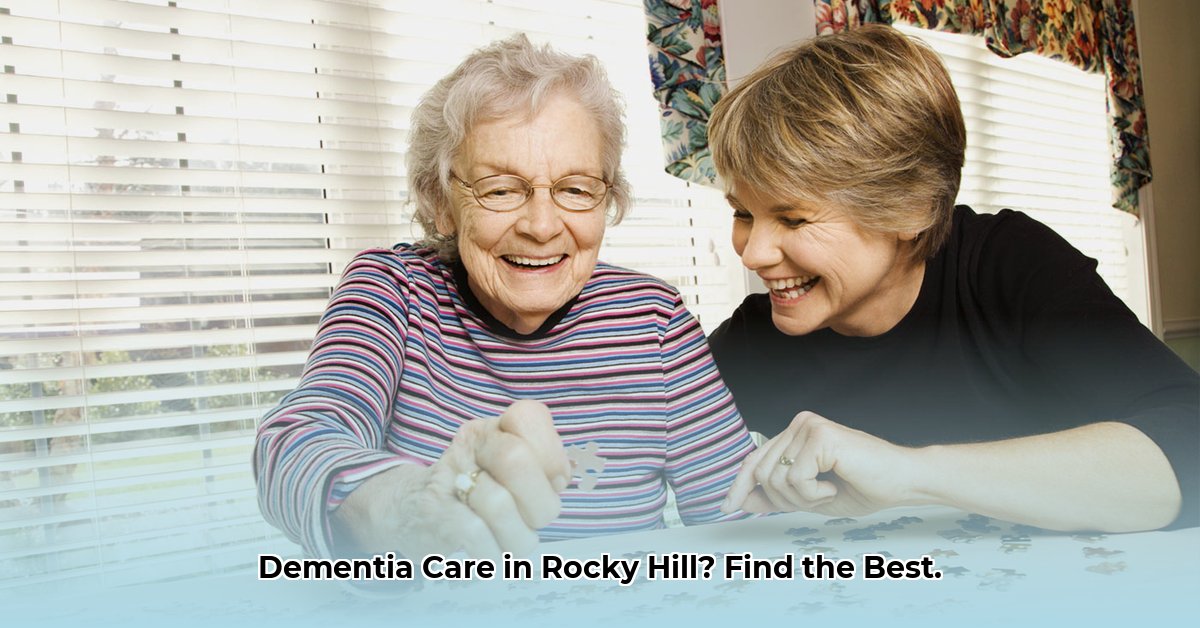
Atrium at Rocky Hill is a memory care facility in Connecticut specializing in dementia care. This review aims to provide a balanced overview of the facility, highlighting its strengths and areas needing improvement, based on available information. We will examine its services, compare its approach to best practices, and offer actionable insights for various stakeholders.
Facility Overview: Services and Amenities
The Atrium at Rocky Hill offers 24/7 care, aiming to provide a safe and supportive environment for residents. Their staff includes Certified Dementia Practitioners and employs the Dementia Live training program. The facility incorporates sensory stimulation through activities and environmental design to enhance resident well-being and maintain independence and dignity. Amenities include [Specific amenities need to be added here from the source material. This is crucial for a comprehensive review]. The facility has operated for 22 years, suggesting a degree of established presence in the community.
Dementia Care Model Analysis: Strengths and Weaknesses
This section critically examines the Atrium's dementia care model, balancing positive aspects with areas requiring further investigation.
Strengths:
- 24/7 Care: The continuous care provides reassurance to families.
- Sensory Stimulation: Engaging activities and environmental design aim to improve resident well-being.
- Focus on Independence and Dignity: The approach prioritizes preserving residents' abilities and self-worth.
- Specialized Staff Training: Certified Dementia Practitioners and Dementia Live training demonstrate a commitment to specialized care.
Weaknesses:
The most significant weakness is the lack of readily available quantifiable data. Crucial information is missing, hindering a complete evaluation of the facility's effectiveness:
- Resident Outcomes: Absence of data on cognitive function improvements, behavioral changes, and overall quality of life makes it impossible to objectively assess program success. This is a critical oversight.
- Staff Retention Rates: Staff turnover significantly impacts care consistency. Data on staff retention is crucial for evaluating the work environment and overall quality of care.
- Cost Transparency: Lack of clear and accessible pricing information makes informed comparisons with other facilities difficult for prospective residents and their families.
- "Supported Living Model" Details: The facility mentions a "supported living model," but specifics of this model are lacking. A detailed description is needed to understand its unique features and effectiveness.
- Uniqueness Claim: The assertion of being the only facility of its kind in Rocky Hill needs further verification.
Comparing Atrium Rocky Hill to Best Practices
While the Atrium's approach appears to incorporate elements of best practices—such as sensory stimulation and specialized staff training—the absence of quantifiable data makes a robust comparison challenging. Leading facilities typically demonstrate effectiveness through measurable resident outcomes and transparent reporting. The Atrium’s lack of this data prevents a conclusive evaluation against established best practices.
Actionable Insights and Recommendations
This section provides practical recommendations for various stakeholders.
For Prospective Residents/Families:
- Conduct a Site Visit: Personally assess the environment, interact with staff, and observe resident interactions.
- Ask Detailed Questions: Inquire about staff qualifications, resident outcomes (even if data is limited), pricing, and the facility's care approach.
- Seek External Feedback: Review online reviews and consult with other families who have used the facility's services.
- Compare Costs and Services: Obtain detailed pricing information and compare it with other facilities offering similar services.
For Atrium Rocky Hill Management:
- Implement Data Collection Systems: Establish a system to track resident outcomes using measurable metrics.
- Regularly Evaluate Programs: Conduct ongoing evaluations to assess program effectiveness and make adjustments based on data.
- Enhance Transparency: Proactively share data with families and regulatory bodies to build trust and demonstrate accountability. Publish pricing information clearly.
For Regulatory Bodies:
- Develop Standardized Metrics: Create consistent metrics to evaluate dementia care facilities, enabling objective comparisons.
- Increase Oversight: Conduct more frequent and in-depth inspections to ensure compliance.
- Mandate Data Transparency: Implement stronger regulations requiring facilities to publicly share relevant data on resident outcomes and financial information.
For Healthcare Professionals:
- Collaborate and Share Best Practices: Cooperate with Atrium Rocky Hill and other facilities to improve dementia care protocols.
- Contribute to Research: Participate in research to refine evidence-based practices in dementia care.
Conclusion: A Call for Transparency and Data-Driven Improvement
The Atrium at Rocky Hill possesses positive attributes, including 24/7 care and specialized staff training. However, the lack of detailed, quantifiable data significantly hinders a comprehensive assessment. Implementing robust data collection and transparent reporting are vital steps to ensure quality of care and build trust with residents, families, and regulatory bodies. Without these improvements, the facility’s true effectiveness remains uncertain. A commitment to data-driven improvement is crucial for enhancing the Atrium's care model and better serving its residents.